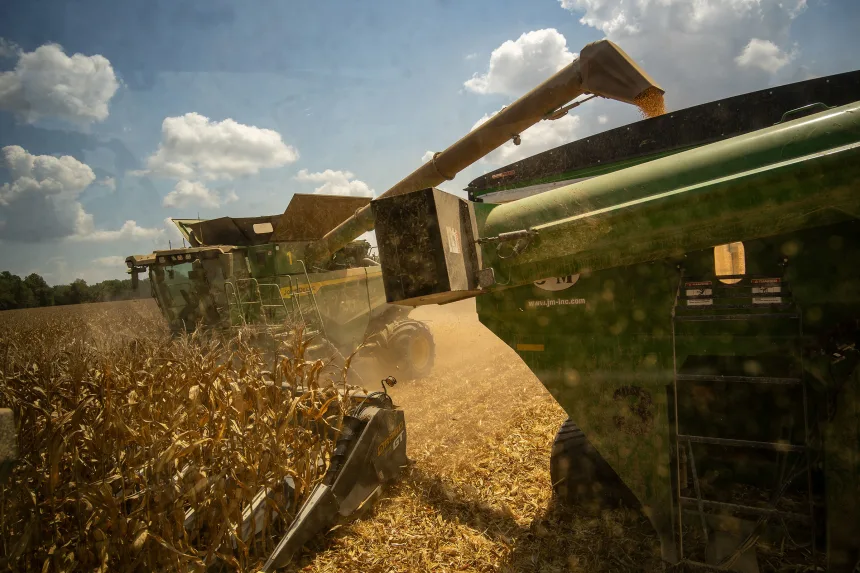Farmers from all corners of the nation are sounding the alarm with growing urgency, highlighting the impending hardships they will face if immediate assistance is not provided to sell the abundant harvest that many are currently in the process of reaping.
As anticipated trade agreements following the imposition of tariffs by President Donald Trump have failed to materialize, and with uncertainty looming over the possibility of a potential farm bailout on Capitol Hill, time is swiftly running out for farmers who, in a significant portion, previously supported Trump.
Brian Warpup, a farmer cultivating corn and soybeans on his expansive 3,900-acre farm in northeastern Indiana, expressed the frustration shared by many, stating, “It just seems like things have stalled all summer long. We’re always hopeful that those negotiations are moving forward, but yet with harvest here, patience may be running thin.”
The challenges faced by farmers nationwide are multi-fold, encompassing trade conflicts, stringent immigration policies under Trump, inflation, and soaring interest rates. These obstacles manifest differently across various regions, with labor shortages for harvesting on the West Coast, surplus produce without buyers in the Midwest, and a widespread struggle to secure storage facilities.
The absence of American soybean purchases by China, the leading global buyer, has compounded farmers’ difficulties, with the country redirecting its sourcing to Brazil in response to Trump’s imposed tariffs earlier this year. This standoff, coupled with plunging commodity prices and escalating costs for inputs like fertilizers and equipment, has placed an unprecedented financial strain on farmers, worsened by high interest rates.
The repercussions of unsold soybeans necessitating storage, paired with inadequate grain bins, are driving farmers such as Warpup to rush sales of their corn stockpile ahead of schedule to make room for incoming soybeans, incurring additional costs for storage solutions.
The escalating specter of farm bankruptcies, which surged by 55% last year according to the American Farm Bureau Federation, is a stark reality looming over the agricultural industry. The renowned financial hardships could lead to a grim scenario where struggling farmers might be unable to meet their obligations, as remarked by Caleb Ragland, a soybean farmer from Kentucky and president of the American Soybean Association.
The elevated prevalence of suicides among farmers serves as a chilling reminder of the mental health toll of such dire circumstances, with Ragland sadly predicting an uptick in such tragedies amidst the current crisis.
Farmers are looking towards Washington for effective interventions, with Trump, who garnered overwhelming support from them in the recent election, under pressure to provide tangible solutions. Efforts are underway at Capitol Hill, with discussions ongoing between lawmakers and administration officials to address the pressing needs of the agricultural community.
In this critical juncture, where immediate assistance is imperative, the industry is grappling with the delayed relief measures under Trump’s proposed legislation, necessitating a more prompt response to alleviate the mounting distress experienced across farmsteads nationwide.
As the farming community braves this turbulent period, their resolve and resilience in the face of adversity underscore the indispensable role they play in upholding America’s agricultural legacy.

